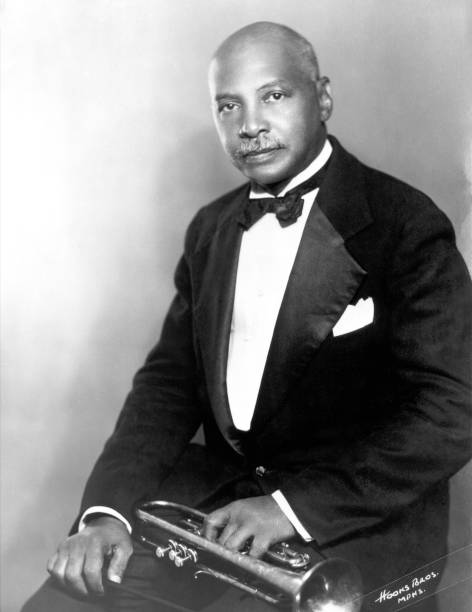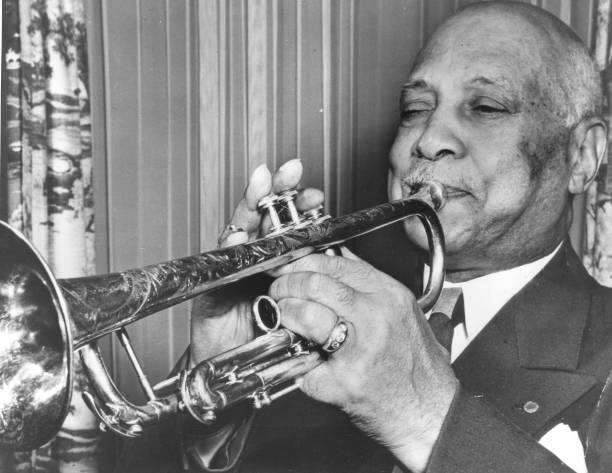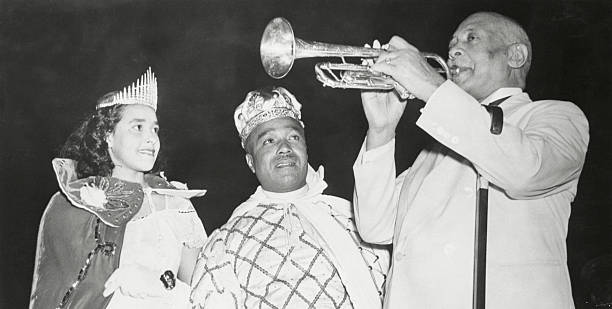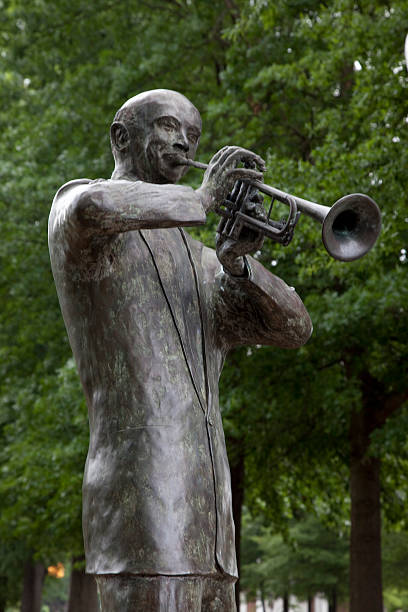The Father of the Blues and Alabama's Musical Pioneer

W.C. Handy, often hailed as the "Father of the Blues," holds a seminal place in the history of American music. His groundbreaking compositions and pioneering efforts to popularize the blues have left an indelible mark on the musical landscape. From his humble beginnings in Florence, Alabama, to his lasting legacy as a composer and musician, Handy's journey is a testament to the transformative power of music and the enduring influence of the blues.
William Christopher Handy was born on November 16, 1873, in Florence, Alabama. Raised in a devoutly religious family, Handy's early life was steeped in the sounds of the church. His father, a pastor, initially discouraged Handy's interest in secular music, viewing it as morally suspect. However, Handy's passion for music could not be contained. He secretly purchased a guitar, and despite his father's disapproval, he began to immerse himself in the musical traditions of the South.
Handy's formal musical education began at the age of 19 when he enrolled in the Teachers Agricultural and Mechanical College in Huntsville, Alabama. Here, he honed his skills in music theory and performance, learning to play a variety of instruments. After graduating, Handy embarked on a career as a musician, joining various bands and orchestras. His early experiences as a performer exposed him to a wide range of musical styles, from ragtime and folk to spirituals and work songs.
In 1896, Handy joined Mahara's Minstrels, a traveling minstrel show that took him across the United States and to Cuba. This period was crucial in shaping his understanding of the diverse musical traditions that would later influence his compositions. It was during these travels that Handy first encountered the raw, emotive power of the blues. In a train station in Tutwiler, Mississippi, he heard an itinerant musician playing the guitar and singing in a style that was entirely new to him. The musician's repetitive, haunting melodies and deeply expressive lyrics left a lasting impression on Handy.
 By 1909, Handy had settled in Memphis, Tennessee, a city that would become central to his musical career. Working as a bandleader and music teacher, Handy began to compose and arrange music that blended the traditional sounds of African American folk music with more formal musical structures. His compositions aimed to capture the essence of the blues while making it accessible to a broader audience.
By 1909, Handy had settled in Memphis, Tennessee, a city that would become central to his musical career. Working as a bandleader and music teacher, Handy began to compose and arrange music that blended the traditional sounds of African American folk music with more formal musical structures. His compositions aimed to capture the essence of the blues while making it accessible to a broader audience.
 In 1912, Handy published "Memphis Blues," a composition that is often credited as one of the first blues songs. Originally written as a campaign song for a local politician, "Memphis Blues" became a sensation, helping to popularize the blues genre. The song's success marked the beginning of Handy's prolific career as a composer and arranger of blues music.
In 1912, Handy published "Memphis Blues," a composition that is often credited as one of the first blues songs. Originally written as a campaign song for a local politician, "Memphis Blues" became a sensation, helping to popularize the blues genre. The song's success marked the beginning of Handy's prolific career as a composer and arranger of blues music.
Two years later, Handy released what would become his most famous composition, "St. Louis Blues." The song was an instant hit and remains one of the most enduring and frequently recorded blues songs of all time. "St. Louis Blues" showcased Handy's ability to blend the blues with elements of ragtime and jazz, creating a sound that was both innovative and deeply rooted in tradition. The song's melancholy lyrics and soulful melody captured the heartache and resilience that are central themes of the blues.
 Handy's other notable compositions include "Beale Street Blues," "Yellow Dog Blues," and "Loveless Love." Each of these works reflects Handy's deep understanding of the blues as both a musical form and a means of expressing the African American experience. His music resonated with audiences across racial and cultural lines, helping to bring the blues into the mainstream of American music.
Handy's other notable compositions include "Beale Street Blues," "Yellow Dog Blues," and "Loveless Love." Each of these works reflects Handy's deep understanding of the blues as both a musical form and a means of expressing the African American experience. His music resonated with audiences across racial and cultural lines, helping to bring the blues into the mainstream of American music.
In addition to his work as a composer, Handy was a tireless advocate for African American musicians and the preservation of their musical heritage. He founded the Handy Brothers Music Company, one of the first African American-owned music publishing companies, which played a crucial role in promoting and distributing blues music. Handy also authored several books, including his autobiography, "Father of the Blues," and "Blues: An Anthology," which documented the history and development of the genre.
Handy's contributions to music were widely recognized during his lifetime. He received numerous honors and accolades, including a star on the Hollywood Walk of Fame and induction into the Alabama Music Hall of Fame. In 1943, a decade before his death, the W.C. Handy Theater was opened in his honor in Memphis, further cementing his legacy as a pioneer of the blues.
W.C. Handy passed away on March 28, 1958, but his influence on music endures. His compositions continue to be performed and recorded by artists across genres, from jazz and blues to classical and popular music. Handy's ability to capture the emotional depth and complexity of the blues has ensured that his music remains relevant and powerful, even decades after it was first composed.
Handy's legacy extends beyond his musical achievements. He paved the way for future generations of African American musicians, helping to break down racial barriers and elevate the blues to its rightful place in American culture. His dedication to preserving and promoting the music of his heritage has had a lasting impact on the world of music, influencing countless artists and shaping the course of modern music history.
W.C. Handy's life and career are a testament to the transformative power of music. His ability to blend traditional African American musical forms with innovative compositions created a sound that was uniquely his own and resonated with listeners around the world. As we celebrate his contributions to music, we also honor his enduring legacy as the "Father of the Blues," a title that reflects his profound impact on the world of music and his role in shaping the blues into the influential genre it is today.
TOP
